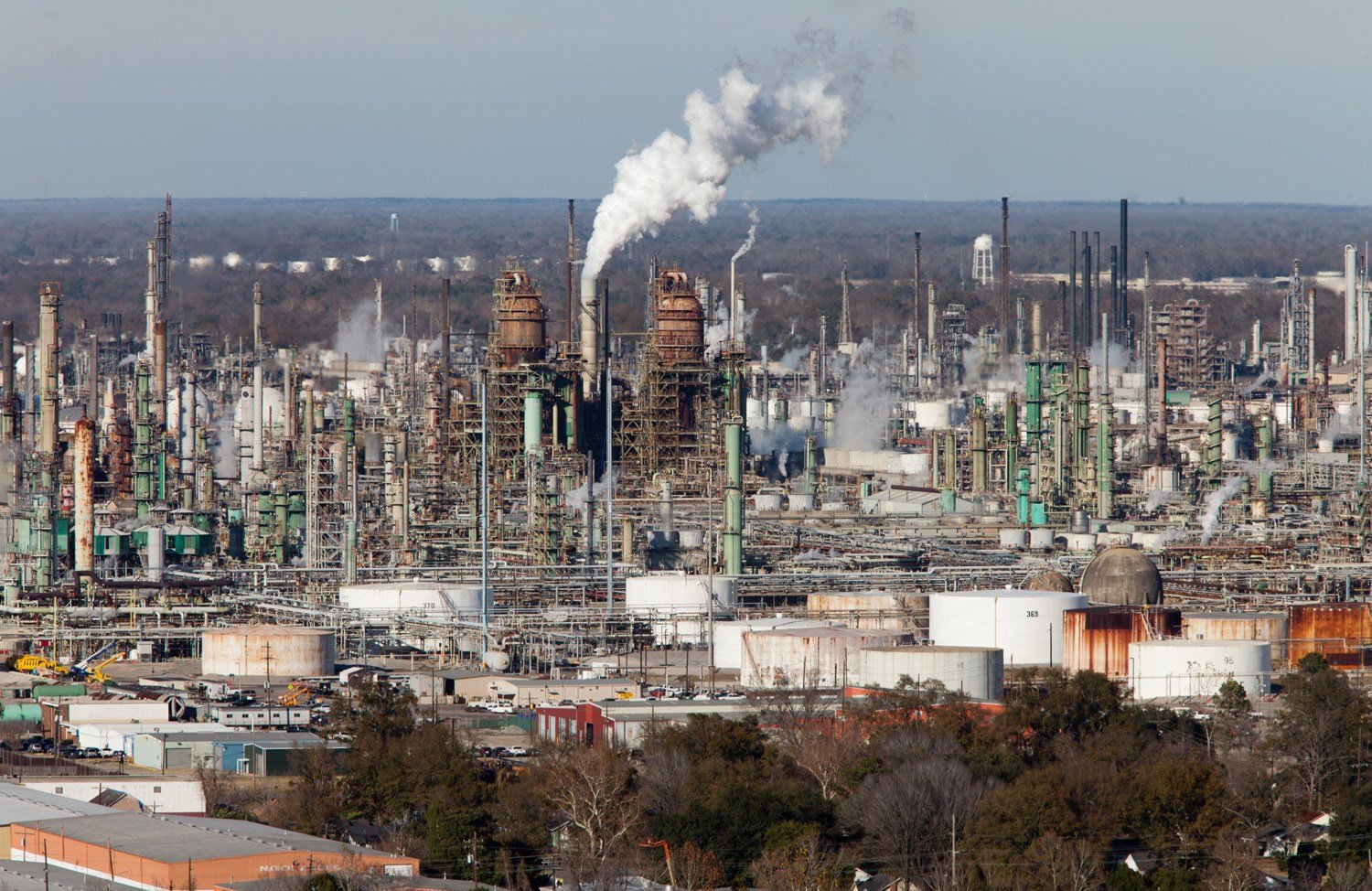'Sacrifice Zones', where pollution causes more deaths than COVID-19
Corporations have infringed human rights and the right to health and hygiene around the globe.
-

"Cancer Alley," where over a hundred oil refineries and petrochemical plants are located, in Louisiana, United States. (Photo: Julie Dermansky)
As a result of heavy pollution, "sacrifice zones" have been created across the planet - these zones see plentiful suffering, with millions suffering from strokes, cancers, respiratory problems and heart disease.
“There are sacrifice zones all over the world, in every region: in the north, in the south, in the east, in the west, in rich countries, in poor countries,” David Boyd, UN Special Rapporteur on human rights and the environment, told the Guardian.
Not only did Boyd speak of physical issues, including reproductive health and strokes, but also mental health issues: “incredible mental health problems associated with living in these places because people feel exploited, they feel stigmatised”.
Intoxication is a violation of human rights: Boyd described the zones as an infringement to the peoples' human rights, "their rights to life, their rights to health, and … their right to a clean, healthy and sustainable environment. You cannot reconcile that fundamental right to a healthy environment with these absolutely horrific environmental conditions.”
Pollution has contributed to twice as many premature deaths as COVID-19 since the pandemic - 9 million deaths.
Boyd's report on the matter reads, “One in six deaths in the world involves diseases caused by pollution, three times more than deaths from Aids, malaria and tuberculosis combined and 15 times more than from all wars, murders and other forms of violence.
“The toxification of planet Earth is intensifying,” the report warns, revealing that although some toxic chemicals are banned, between 2000 and 2017, their overall production doubled.
Boyd pointed to the United States as having one of the worst, most polluted sacrifice zones on the planet: “The United States, one of the wealthiest countries in the world, one of the wealthiest countries in all of human history, is home to one of the worst sacrifice zones on the planet. This place, it’s called ‘cancer alley’, in Louisiana, where there are more than a hundred oil refineries, petrochemical plants, etc,” he said.
Read more: US World's Biggest Plastic Polluter
“And guess where they’re located? In poor, predominantly black communities. It’s just, as I said, it’s unconscionable.”
While pollution is widespread on the planet, it affects people in different levels, namely depending on their social class: “If you look at these places that I’ve highlighted in the report, pollution on our planet today is pervasive, it’s affecting everyone but it’s affecting some people in a really grossly unfair and disproportionate way,” Boyd told the Guardian.
Read more: Climate change highlights global inequality
In Kabwe, Zambia, 95% of children have excessive lead in their blood, which sets them at a perpetual intellectual impairment.
In Romania, at the Pata Rat landfill, thousands of people in its vicinity are exposed to toxic pollutants such as lead, mercury and arsenic.
Read more: Air Pollution Still Killing 300,000 in Europe
Caribbean territories colonized by the French, such as Guadeloupe and Martinique, had a population where 90% of its people have carcinogenic pesticide chlordecone in their blood.
The main culprit is businesses, which contribute most to global pollution. Boyd called for governmental regulations on production.
“[Oil and gas companies are] not going to voluntarily stop producing oil and gas; big coal companies are not going to voluntarily shift from being big coal companies to being big solar and wind companies: governments have to do that, that’s their job, it’s governments that have the obligations to respect, protect and fulfil our human rights,” Boyd said.

 4 Min Read
4 Min Read










